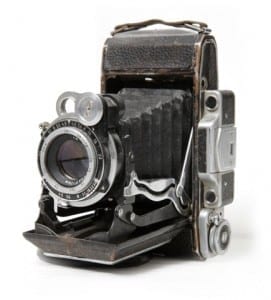 You’ve probably played the memory game where you look at a group of objects on a tray for a minute. When the tray is taken away, you are supposed to write down every object that you can remember. If there are a substantial number of objects, it’s unusual if someone can remember and name all of them.
You’ve probably played the memory game where you look at a group of objects on a tray for a minute. When the tray is taken away, you are supposed to write down every object that you can remember. If there are a substantial number of objects, it’s unusual if someone can remember and name all of them.
In a similar way, the details of a car accident can quickly be forgotten. At our office, much of our work involves documenting the facts of accidents, and that is why we recommend taking pictures at the scene of an accident whenever possible. Photographs show elements that may have been overlooked, but could strengthen a client’s case.
Who uses the pictures from an accident? Accident scene photos are used by insurance adjusters, investigating officers, attorneys, and accident reconstructionists. For starters, property damage adjusters use photographs to keep a record of vehicle damage. Liability adjusters often use photos to compare the amount of vehicular damage to the severity of injuries made by a claimant.
Sometimes investigating officers will take pictures at the scene of an accident. When pictures are available, our office will order copies of those pictures from the police or highway patrol departments. In addition, attorneys for all involved parties rely on photographs to help piece together the facts of an accident.
If the situation warrants, we use accident reconstructionists—trained professionals hired to answer questions usually about the mechanics or physics of an accident. They also use photographs in their investigations and we supply them with any and all photographs to aid in the reconstruction process.
What are the uses of the photographs? Pictures from an accident scene also reveal other factors that may have contributed to an accident. For example, they can show road conditions at the time of the accident. Were the roads icy? Wet? Dry? Pictures reveal weather conditions, too. Was it raining or snowing? Sunny or foggy? Finally, pictures document the time of day. Did the accident happen in the morning or night? Was it broad daylight or dusk?
It’s important to take pictures at the scene especially if there are conditions that could change after the accident. For example, road hazards such as potholes or debris may be remedied shortly after an accident so it is best to take pictures at the time, if possible. If you go back later, the scene may look different because the condition that may have contributed to the accident may have been fixed.
Keep a camera with you. Although the law does not require that you take pictures of the scene of an accident, we recommend that you keep a camera with you when you travel. We recognize that most people carry cell phones with built in cameras, but in the rare event that a person does not have a camera available, please come to our office to pick up your free Accident Survival Kit. This compact vinyl case contains a disposable camera. The kit is designed to fit in a glove box and will also hold your insurance documents so you can easily retrieve them when necessary. It also includes a checklist of what to do after a crash.
If you’re involved in a car accident, take photographs of the scene, the vehicles, the roads, and any other factors that you think may be important. It is so much easier to have a picture instead of having to remember details about an accident that can be easily forgotten.
Bring your photographs to our office. If you or someone you know has been involved in a car accident, contact our office at (435) 673-9990 for a free consultation. Bring your pictures, too. Our expertise in personal injury law can help you get your questions answered and show you what options are available to you.
At McMullin Injury Law we are… In Your Community and On Your Side.



